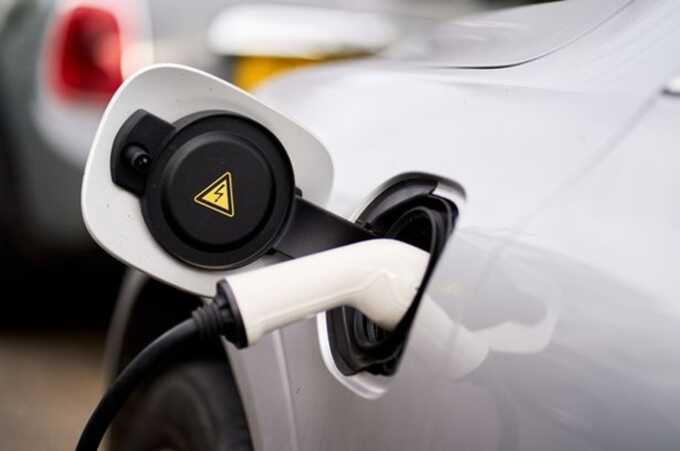
The UK motor industry is being consulted over how the phasing-out of new petrol and diesel cars by 2030 will work, the government has announced.
The ban on sales of these vehicles had been extended to 2035 under the previous Conservative government but Labour said it would restore the 2030 deadline in its election manifesto.
Transport Secretary Heidi Alexander is now seeking views from automotive and charging experts to "restore clarity" on how to deliver the ban.
Car industry leaders have warned drivers were not switching to electric vehicles at the rate needed to meet the deadline due to the cost of buying the cars privately and charging point infrastructure.
Last month, Ford said the UK government’s mandate to produce and sell more electric vehicles (EVs) "just doesn’t work" without demand.
Lisa Brankin, Ford UK’s chair and managing director, told BBC Radio 4’s Today programme: "The one thing that we really need is government-backed incentives to urgently boost the uptake of electric vehicles."
The Department for Transport said the consultation would "restore clarity for vehicle manufacturers and the charging industry" so they "have the confidence to invest in the UK in the long term and drive growth in the UK automotive industry".
Hybrid sales
The consultation proposes updates to the Zero Emission Vehicle (Zev) mandate, which sets out the percentage of new zero emission cars and vans that manufacturers will be required to sell each year up to 2030.
In 2024, EVs must make up 22% of a carmaker’s car sales, and 10% of van sales. This target is set to rise. Firms failing to meet these targets face a £15,000 fine per sale.
Companies can avoid fines by buying "credits" from firms that have exceeded their quotas for electric car sales. They can also "borrow" allowances from future years.
The Energy and Climate Intelligence Unit think tank said target required to be achieved by each manufacturer was due to be reached as an average across the industry because these credits would be taken into account.
The government’s eight-week consultation aims to gather views on which cars can be sold alongside zero emission vehicles from 2030, including full hybrids and plug-in hybrids, as well as the strategy for vans and the policy for small volume manufacturers.
More than two-thirds of car manufacturers in the UK, including Stellantis, have committed to transitioning fully to electric cars by 2030.
However, firms have also announced thousands of job cuts, partly because of EV targets.
UK car production experienced a sharp decline in October 2024, with overall output dropping by over 15% compared to the previous year. The Society of Motor Manufacturers and Traders (SMMT) attributed this fall to weak demand and a significant decrease in exports.
Electric and hybrid vehicle production saw an even steeper decline, falling by one-third due to flagging European demand and factory retooling for new models.
However, last month, EVs made up one in four cars sold in the UK, Alexander said, with drivers "already embracing EVs faster than ever".
"Today’s measures will help us capitalise on the clean energy transition to support thousands of jobs, make the UK a clean energy superpower, and rebuild Britain," she added.
The government said the consultation would also be part of a "wider push" to make it easier and cheaper to charge electric cars.
There are now more than 72,000 public charging points in the UK, with another 100,000 planned by local authorities across England.
Edmund King, president of the AA, said it supported the "challenging but ambitious" 2030 zero emissions car sales deadline.
Mr King says drivers have been "hesitant about the transition but not hostile" but the consultation would bring more clarity and certainty.
Mike Hawes, chief executive of automotive industry body the Society of Motor Manufacturers and Traders, said the automotive industry welcomed the government’s "review of both the end of sale date for cars powered solely by petrol or diesel, and possible changes to the flexibilities around the Zero Emission Vehicle Mandate".
"These are both critical issues for an industry that is facing significant challenges globally as it tries to decarbonise ahead of natural market demand," he added.
"With the 2025 market looking under even greater pressure, it is imperative we get an urgent resolution, with a clear intent to adapt the regulation to support delivery, backed by bold incentives to stimulate demand," Mr Hawes said.